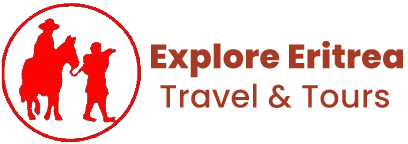Travel Tips
AIRLINES:
Eritrean Airlines, Ethiopian Airlines, Egypt Air, Turkish Airways, Fly Dubai, Air Arabia and Tarco Aviation operate regular international flights from/to Asmara to/from many parts of the world including Europe, Asia, North America, Middle East and Africa.
AIRPORT:
Asmara International Airport is the country’s major gateway, where international airlines make direct flights. Two other major airports are the new Massawa International Airport and Assab International Airport.
ENTRY VISA:
All foreign nationals, except citizens Sudan and Uganda require an entry visa to Eritrea, which can be obtained before entering Asmara from Eritrean Embassies or consulates in country of residence.
ENTRY VISA ON ARRIVAL
For those traveling from countries where there is no Eritrean Embassy, entry visa can be granted upon arrival at the airport upon prior request from the Ministry of Foreign Affairs in Asmara.
Note: Regarding Entry visa support and Entry visa on arrival
CLIMATE:
Eritrea has a pleasant tropical climate with three distinct climatic zones- the central highland, the coastal regions and the western lowlands.
THE BEST TIME TO VISIT ERITREA:
Most part of the country, including Asmara, is endowed with a pleasant and balmy climate throughout the year; hence, it can be visited anytime. The best months for the three climatic zones are September to April.
WHAT TO WEAR
Due to the sultry climate, light cotton clothing with sunglasses and a hat are recommended for the lowlands and coastal areas. Anyone visiting the highlands should pack medium clothing with a light sweater or jacket. For visits during the rainy season (June – September), a light raincoat is recommended (some might also bring an umbrella).
CURRENCY
The Eritrean unit of currency is the Nakfa, which is divided into 100 cents. It has notes with denominations of 1, 5, 10, 20, 50 and 100; cents with values of 1, 5, 10, 25 and 50.
A declaration of foreign currency under USD 10,000.00 is not required; however, one must declare amounts larger than this on arrival.
The current exchange rate is Nakfa 15.00 to USD 1.00. Although USD and EURO are more preferred, all foreign currencies can be exchanged at the Commercial Bank of Eritrea and official exchange offices such as Himbol Exchange Bureau, conveniently located at the airport and in major cities.
HEALTH
Thanks to the Government’s untiring efforts and meticulous health program executions, at present, Eritrea does not suffer from debilitating endemics that still plague its neighbouring countries. However, to be on the safe side, a supply of necessary medicines and inoculations are advisable. Travelers who are from or transiting via infected areas must have a valid certificate of Yellow Fever vaccination.
OFFICE HOURS
Monday to Friday: 0800 – 1200 and 1400 – 1800; and 0800 – 1200 on Saturdays.
ELECTRICITY
220 volts AC, 50 Hz. Though major hotels avail adapters for guests, travelers with appliances and electronic gear are advised to bring their own adapter kit; otherwise, adapters are available at electronic shops.
WATER
To be on the safe side, it is advisable to stick to clean water. The handy bottled water that comes in half liter and a liter are available for sale everywhere.
TRADITIONAL COURTESIES
While Eritreans are well aware of the form in other countries, they tend to be conservative at home. A handshake greeting is normal, with a pleasant discussion on personal matters before getting down to business. The offer of tea or coffee is normal. Smoking is not popular amongst traditional or elderly people. Shoes are always taken off before entering orthodox churches and mosques.
PHOTOGRAPHING
To capture the beautiful touristic attraction that Eritrea offers, travelers are advised to bring their own camera.
You should avoid taking photographs of government buildings and military establishments. Do also remember that many local people don’t like to be photographed.
Hence, be courteous and use discretion when talking photos of people and ask permission before doing so.
Professionals (journalists, travel writers, researchers, etc.) need explicit photographic permits obtained from the Ministry of Information.
LANGUAGES
Tigrinya, Arabic and English are the working languages. Italian is understood among the elderly.

